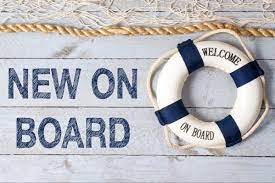 September 2024
September 2024
Condo boards are the custodians of power in condominium communities. They are volunteers looking out for their community’s welfare, success and continued operation. The skills, experience and insights of condo directors provide stability to their communities.
Condo boards come and go. Directors join and leave the board creating a fluid system of management.
Condo boards that fail to remember the past will repeat efforts, and make mistakes, at considerable cost. Institutional memory is the collective set of facts, concepts, experiences and knowledge held by a group of people. Condo corporations lose institutional memory when directors, management and employees change without passing on what they’ve learned.
 Condo directors do not serve indefinitely. Successful condo boards ensure there is a peaceful transition of power and institutional memory to ensure the continued health of their community. What has been learned by prior condo boards does not get lost to the corporation as directors depart and new directors replace them. Maintaining institutional memory means incorporating all of the experience of past condo boards within a current condo board. These experiences reflect knowing what has been done or attempted in the past so as to make the best decisions for today.
Condo directors do not serve indefinitely. Successful condo boards ensure there is a peaceful transition of power and institutional memory to ensure the continued health of their community. What has been learned by prior condo boards does not get lost to the corporation as directors depart and new directors replace them. Maintaining institutional memory means incorporating all of the experience of past condo boards within a current condo board. These experiences reflect knowing what has been done or attempted in the past so as to make the best decisions for today.
 When board members depart, their replacements don’t have firsthand experience. This takes years to develop. They don’t know the history of the property including details on mechanical systems, warranties, service contracts, recent problems or weaknesses. This can be solved by always having a combination of new and old members on the board.
When board members depart, their replacements don’t have firsthand experience. This takes years to develop. They don’t know the history of the property including details on mechanical systems, warranties, service contracts, recent problems or weaknesses. This can be solved by always having a combination of new and old members on the board.
An entirely new board can take office with no transition where new directors can learn from past directors. An entire board may have chosen to retire from office, or directors are voted out of office because owners no longer support them. This can cause a loss of accumulated wisdom. New directors waste time and resources reinventing the wheel. They seek to accomplish what has been done before or fail to understand why their approach is unlikely to succeed.
Each director has their own perception of how a property has been managed in the past, and their own skill set. New directors are usually less aware of board procedures and responsibilities. When taking over for an effective board, the transition can be smoother since the focus will be on future goals and sustaining what has worked in the past. When an entire board is replaced and has been ineffective or with conflict, new directors need to focus on repairing what has been broken by actions taken by the prior board, and resident perceptions. The new board takes time to learn how things work in their community, then each others priorities and skills before they can develop short- and long-term goals.
Training is the fastest and most effective way to get a new board of directors ready to fully contribute. Proper processes and procedures, and available training makes the transition easy. The condominium manager should provide information to new board members about expectations and basic terminology so they understand what is being discussed, and the past six months’ minutes and manager’s reports. Each should be encouraged to read their declaration and rules, and the Condo Act, to better understand the community’s rules, their goals and responsibilities; and how to interact with management, other board members and residents.
Another way to maintain continuity is to stagger board terms. When board members are not all elected in the same year and for the same term length, there is less likelihood that all directors will be replaced at the same time. There is always someone on the board with at least one year of experience in the position and who knows the history of the property. The board retains knowledge of board actions, goals and intentions. New directors provide ideas and priorities as they gain experience.
 Quick and efficient integration of new board members, or an entirely new board, is essential for continued smooth operation. This requires planning, training and transparency.
Quick and efficient integration of new board members, or an entirely new board, is essential for continued smooth operation. This requires planning, training and transparency.







